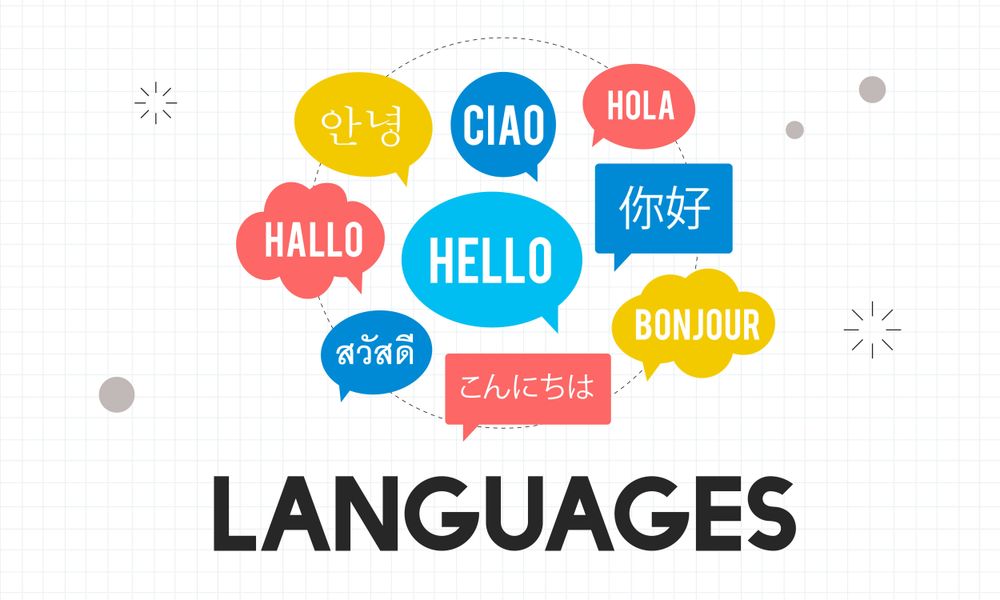Artificial Intelligence (AI) is rapidly transforming the landscape of the modern workplace and bringing about unprecedented changes in how tasks are performed and decisions are made. From enhancing customer service to streamlining data analysis, companies are integrating the technology into their systems to create opportunities for greater efficiency and innovation.

However, contrary to some fears, AI is not here to replace human workers; rather, it serves as a powerful tool to augment human capabilities. And understanding AI as a tool for augmentation rather than replacement is crucial for maximizing its potential benefits.
As businesses increasingly adopt AI technologies, the demand for a workforce skilled in collaborating with these systems grows. Employees must develop a range of essential skills to work effectively alongside it, ensuring they can leverage its capabilities while providing the irreplaceable human touch in areas requiring judgment, creativity, and empathy. Developing skills for AI collaboration in the workplace is paramount for any organization looking to stay competitive in this AI-driven era.
In this article, we will delve into the essential AI skills for professionals. It explores the technical, analytical, and soft skills that are vital for seamless human-AI collaboration. Additionally, it discusses the importance of preparing your workforce for AI adoption and offers practical tips for encouraging AI skills development. By understanding and cultivating these skills, employees and organizations can harness the full potential of AI, driving growth and innovation in the modern workplace.
The Role of Employees in AI Integration
The successful integration of AI into the workplace hinges on a collaborative dynamic between humans and AI systems. While AI can handle repetitive tasks, process large volumes of data, and provide analytical insights at speeds beyond human capacity, the human element remains indispensable. Employees bring creativity, critical thinking, emotional intelligence, and ethical considerations to the table—areas where AI still falls short.
Simply put; to achieve successful integration, employees must not only understand how to effectively use AI tools to enhance their work but also recognize the limits and capabilities of both the technology and them. This knowledge empowers them to leverage AI's strengths while applying their unique human skills where they are most needed.
For instance, AI excels at tasks that involve:
- Data Processing and Analysis: AI can handle large volumes of data quickly and accurately, identifying patterns and insights that might be missed by human analysis - an invaluable capability in almost every field.
- Automation of Routine Tasks: Tasks such as scheduling, data entry, and basic customer service inquiries can be automated by AI, freeing up employees to focus on more complex and creative work.
- Predictive Analytics: AI can forecast trends and outcomes based on historical data, assisting in areas like sales forecasting, inventory management, and predictive maintenance.
- Natural Language Processing (NLP): AI-driven chatbots and virtual assistants can handle customer inquiries, provide information, and even assist with troubleshooting, enhancing customer service efficiency.

While humans cannot be replaced in several critical areas that involve:
- Ethical Decision-Making: AI can process information, but it cannot make ethical judgments. Humans are needed to ensure that AI applications adhere to ethical standards and societal norms.
- Creativity and Innovation: While AI can generate ideas based on existing data, true creativity and innovative thinking require the human touch. Employees play a vital role in ideating and driving innovation.
- Emotional Intelligence: AI lacks the ability to fully understand and respond to human emotions. Human interaction is essential in roles that require empathy, such as counseling, healthcare, and customer relations.
- Strategic Thinking: Even though AI can provide data-driven insights and assist in decision-making, strategic decisions often involve considering factors beyond the data. Human experience and intuition are crucial in crafting and executing long-term strategies.
By recognizing these distinctions, businesses can learn how to develop effective collaboration between AI and human employees. This understanding allows organizations to better allocate tasks, ensuring that AI handles data-intensive, repetitive functions while human employees focus on areas requiring creativity, critical thinking, and emotional intelligence.
7 Effects of Failing to Prepare Your Workforce for AI Adoption
The adoption of AI technologies can bring transformative benefits to organizations, but these benefits can only be realized if the workforce is adequately prepared. Not letting employees develop the necessary skills for AI collaboration in the workplace is sure to have significant negative consequences, impacting both the organization and its employees.
- Reduced Productivity - Without proper training, employees may struggle to use AI tools effectively, leading to decreased efficiency and productivity - the complete opposite of one of the main benefits of AI integration. Systems that are not properly implemented, managed, or utilized can become a hindrance rather than a help, causing workflow disruptions.
- Increased Resistance to Change - Employees who are not adequately prepared may resist the adoption of AI technologies. Fear of job displacement, a lack of understanding of the technology, and absence of essential AI skills for professionals can lead to resistance and reluctance to embrace new tools and processes. And the longer this goes on, the stronger the resistance becomes.

Decreased Employee Morale and Engagement - In addition to resistance, lack of training and support can lead to frustration and disengagement among employees. When employees do not feel confident in their ability to use new technologies, their morale can suffer, impacting overall job satisfaction and productivity.
- Missed Opportunities - By not training employees for AI integration, businesses risk missing out on opportunities for innovation and growth. It’s been proven time and time again that it can provide valuable insights and drive strategic decision-making, given that employees are equipped with key competencies in AI-driven environments.
- Higher Costs - Inefficiencies and errors, retraining, and correcting mistakes resulting from improper use can lead to increased operational costs.
- Inefficiencies and Reduced Competitiveness - Businesses may find themselves at a competitive disadvantage if they make the mistake of not preparing the workforce for AI adoption. Inefficiencies in usage can lead to slower response times, reduced service quality, and an inability to keep up with competitors who have successfully integrated AI.
- Customer Dissatisfaction - Ineffective use of AI can result in poor customer experiences. For example, AI-driven customer service systems that are not properly managed can lead to unresolved issues and customer frustration, so it’s important to ensure that employees are well-prepared and can help maintain high standards of customer service.
9 Essential Skills for Employees to Work Effectively with AI
It is a must for employees to develop skills for AI collaboration in the workplace if they wish to thrive in an AI-augmented environment. These skills encompass a broad range of abilities, from technical know-how to critical thinking and effective communication. Here’s a detailed look at each skill and why it is crucial for working effectively with AI:
- Data Literacy
For AI, data is oxygen, which is why employees should be familiar with different types of data (structured, unstructured, and semi-structured), methods for gathering from various sources, and interpreting it to derive meaningful insights. It also helps to develop proficiency in data analysis tools and data visualization software. Data literacy enables employees to understand and leverage outputs effectively, ensuring that they can make data-driven decisions and contribute to the continuous improvement of AI systems.
- Basic Programming Knowledge
Having a basic understanding of programming languages relevant to AI can be highly beneficial. It allows employees to automate tasks, customize tools, and better understand how models work. This knowledge not only enhances their ability to interact with systems but also empowers them to solve problems more efficiently and create more tailored AI applications.

- Familiarity with AI Tools and Platforms
Familiarity and comfort with popular AI tools and platforms, such as TensorFlow, IBM Watson, and Microsoft Azure AI, is essential. On top of that, staying up-to-date is a must. This ensures that they can quickly adapt to new tools, optimize their use of AI, and remain competitive in a technology-driven market.
- Critical Thinking
Critical thinking is necessary for analyzing AI outputs and making informed decisions. Employees should be able to evaluate AI-driven insights, assess the relevance and accuracy of AI-generated data, identify potential biases, and apply insights strategically. This skill ensures that employees do not blindly trust AI outputs but critically assess their value and implications, leading to better decision-making and more robust AI applications.
- Problem-Solving
Effective problem-solving involves using a combination of AI and human intuition to tackle challenges. Employees should be adept at identifying the right problems for AI to solve, formulating questions AI can address, collaborating with AI to generate solutions, and implementing these solutions while monitoring their impact. This skill is crucial for optimizing processes, driving innovation, and ensuring that AI is used to its full potential.
- Data Interpretation
Interpreting complex data sets and AI-generated reports accurately is critical. Employees need to understand AI outputs, derive meaningful insights from data, and ensure data accuracy. Accurate data interpretation enables employees to make well-informed decisions, optimize business strategies, and contribute to the continuous refinement of AI models.
- Adaptability
In a rapidly evolving AI landscape, adaptability is key. Employees must be open to learning new tools, continuously updating their knowledge of AI technologies, and embracing change. Adaptability ensures that employees can keep pace with technological advancements, seamlessly integrate new AI tools into their workflows, and remain flexible in their approach to problem-solving.
- Communication Skills
Effective communication is crucial for conveying AI-driven insights to various stakeholders. Employees should be able to translate technical information into understandable terms for non-technical audiences, present findings clearly and concisely, and foster collaboration by working effectively with team members. Strong communication skills ensure that the benefits of AI are fully realized across the organization and that all stakeholders are aligned in their understanding and use of AI technologies.
- Collaboration
Working in human-AI teams requires strong collaboration skills. Employees should understand AI capabilities and limitations, work as a team with AI systems and colleagues to achieve common goals, and leverage AI to enhance team productivity and innovation. Purposeful collaboration ensures that AI is integrated smoothly into the workplace, maximizing its benefits while maintaining a harmonious and productive work environment.
By developing these essential skills, employees can effectively work alongside AI systems, maximizing the benefits of AI integration in the workplace. This skill set not only enhances individual performance but also contributes to the overall success and competitiveness of the organization.
6 Tips for Encouraging AI Skills Development in Your Employees
As a business, developing AI literacy among staff requires more than just a desire – it demands proactive encouragement to motivate employees and make learning enjoyable. And here’s how your business can do that:
- Provide Training Opportunities - Offer training programs, workshops, and courses on a wide range of AI-related topics and let your employees discover AI technologies and applications. Also, create online learning platforms so employees can learn at their own pace and tailor their learning to their specific roles and interests.
- Support Hands-On Experience - Encourage employees to gain hands-on experience with AI tools and platforms by providing access to sandbox environments, demo projects, and real-world use cases. Allowing employees to experiment with AI technologies in a safe and supportive environment fosters confidence and proficiency, enabling them to apply their learning to real-world scenarios effectively.
- Foster a Collaborative Environment - Create opportunities for collaboration and knowledge-sharing among employees working with AI. Creating a collaborative environment not only enhances teamwork but also accelerates learning and innovation, leading to more successful AI implementations.
- Recognize and Reward Learning - Recognize and reward employees who demonstrate a commitment to learning and skill development. Rewards such as certifications, badges, or incentives encourages continuous learning and reinforces the importance of AI skills development within the organization.
- Lead by Example - Leadership plays a crucial role in fostering the right workplace culture. Everyone, from top to bottom, should actively participate in AI training programs to demonstrate the company’s commitment to continuous learning and inspire and motivate employees.
- Provide Resources and Support - Ensure that employees have adequate resources and support. This includes access to AI tools and platforms, mentorship programs, and opportunities for further education and professional development. Providing comprehensive support shows the organization's commitment to employee growth and success in the AI-driven workplace.
By implementing these tips, you can create a supportive environment that encourages AI skills development in employees, enabling them to harness the full potential of AI and drive innovation and growth within the organization.
Develop Essential AI Skills for Professionals!
It’s worth reiterating that AI's role isn't to replace humans but to enhance their capabilities. As businesses integrate AI, the need for a skilled workforce becomes paramount. Employees must develop a range of skills, from technical prowess to critical thinking and effective communication, to effectively partner with AI systems. By fostering a culture of continuous learning and skill development and providing support and resources, businesses can ensure their workforce is equipped to thrive in an AI-driven era, driving innovation and competitiveness.

In conclusion, embracing AI as a tool for augmentation rather than replacement is crucial for organizations seeking to maximize its benefits. Through strategic investment in employee training, fostering collaborative environments, and recognizing the importance of AI skills development, businesses can harness the full potential of AI, driving growth and innovation in the modern workplace. With a skilled and empowered workforce, businesses can navigate the evolving landscape of AI integration with confidence, positioning themselves for success in the digital age.





